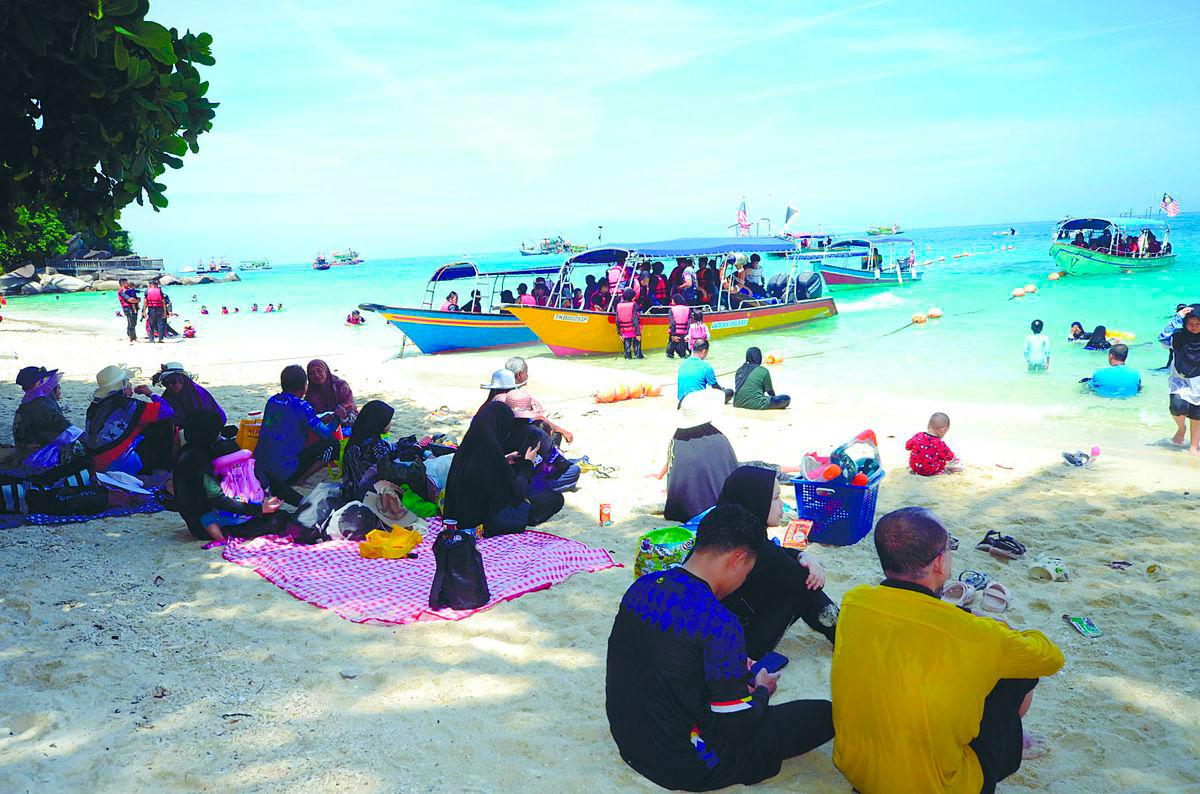THE recent incidents – from a near-miss during a solo dive off Tioman to the tragic boat capsize off Pulau Perhentian – underscore a critical need for heightened safety in Malaysia’s tourism sector.
These incidents, primarily impacting marine recreation, are symptomatic of a broader issue that extends across land-based resorts, transport and all adventure activities.
Last weekend, I returned from a three-day, two-night church retreat at a beautiful resort. While the serene environment promised relaxation, I was shocked by glaring safety omissions. This seemingly ideal setting, capable of housing over 300 guests, lacked visible fire safety equipment and clear exit signs.
To add to this, two individuals from our group suffered cuts from broken tiles in the swimming pool, necessitating immediate medical attention.
While our nation offers incredible experiences across land, sea and even air, the drive for fun can sometimes lead to bypassed safety protocols. This reflects a human tendency, particularly on holiday, to drop our guard, become more adventurous and even overestimate our own capabilities.
We see it in tourists taking perilous photos at the edge of a cliff or engaging in activities alone that clearly require supervision. This “holiday high” can unfortunately morph into a “holiday hazard” and I have personally witnessed countless such instances resulting in avoidable injuries and near misses.
Unwavering role of operators and guides
Tour operators, guides and tourism establishments are not just facilitators; they are guardians of safety. Their role is paramount.
All operators, from resort owners to tour bus drivers, must rigorously follow safety regulations. This means regular inspections of equipment and facilities, proper licensing and unwavering compliance with capacity limits, weather advisories and operational guidelines.
This includes ensuring adequate rest periods for drivers and strict adherence to speed limits. Crucially, operators and their staff must resist tourist pressure to cut corners. This means emphatically declining demands to speed up schedules, skip mandatory rest breaks or disregard safety requirements like wearing seatbelts or life jackets.
Saying no to risky demands is not rude; it is professional and life-saving.
Before any activity, thorough safety briefings are essential, and equipment and facilities must be meticulously checked for hazards – from clear pathways and functional fire extinguishers to well-maintained, damage-free pool areas.
Only certified and experienced staff should lead activities and manage facilities. Tour guides, in particular, should actively foster an “intervention culture” among tourists. They must encourage guests to speak up if they observe fellow travellers engaging in unsafe behaviour.
This includes transparently discussing the dangers of overestimating one’s capabilities, emphasising the importance of always checking health and physical limitations before engaging in activities and highlighting the dangers of engaging in supervised activities alone, like diving.
Promoting group vigilance and personal responsibility will help prevent unnecessary risks and solo stunts in high-risk scenarios. This proactive guidance can help counterbalance the inherent human tendency to drop caution when seeking adventure, ensuring a safer and truly memorable experience.
Shared commitment to safety
As we embark on the ambitious “Visit Malaysia Year 2026” campaign, it is paramount that we do not repeat the mistakes committed by some of our neighbouring countries, where high-profile safety and security issues have unfortunately tarnished their reputations as tourist destinations.
The global tourism landscape is competitive and negative perceptions, once established, are incredibly difficult to reverse.
Tourists also bear responsibility. The desire for a thrilling experience should never override common sense and adherence to expert guidance. Safety protocols are not inconveniences; they are lifelines.
Therefore, government safety agencies must enforce existing laws for compliance rigorously. The frameworks and regulations are largely in place. The critical challenge lies in why non-compliance remains a common occurrence.
This calls for stronger enforcement measures, including more frequent and unannounced inspections, heavier penalties that genuinely deter violations and increased prosecution of offenders.
There must be a clear and unwavering message that safety regulations are not mere suggestions but non-negotiable requirements, ensuring consistent standards across all tourism sectors.
Let us transform recent events into a catalyst for change. By prioritising safety as a deeply-ingrained value, we can ensure every Malaysian adventure is filled with cherished memories and not tragic regrets, and firmly establish our nation as a truly safe and welcoming destination for all.
Comments: letters@thesundaily.com









